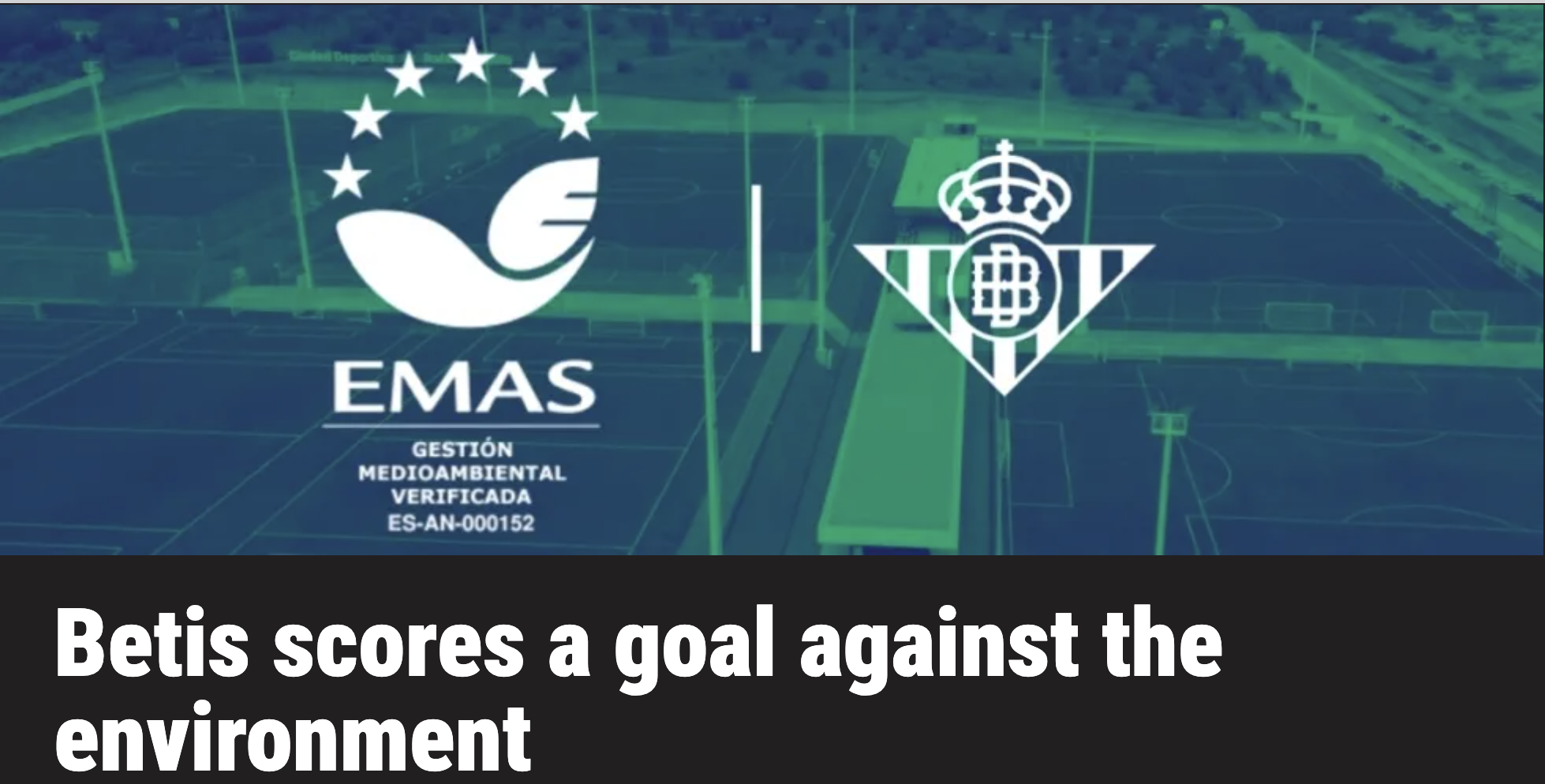Mundo Deportivo Palco23: Betis scores a goal against the environment

Disclaimer: This article has been translated using artificial intelligence and may not be entirely accurate. If there are any inconsistencies, please refer to the original version in Español.
Real Betis Balompié has become the first Spanish football club to register with the EMAS (Eco-Management and Audit Scheme) Registry, the highest European recognition for environmental management. With this certification, the green-and-white club reinforces its commitment to sustainability and places itself at the forefront of sports organizations in Spain and Europe.
The EMAS Register, promoted by the European Union, recognizes organizations that implement a rigorous and transparent environmental management system, ensuring both impact reduction and continuous improvement in ecological efficiency.
For Betis, this milestone represents support for the many initiatives developed in recent years under its Forever Green program , aimed at environmental protection and social awareness.
Real Betis Balompié is positioned as a benchmark in the sporting field
The club emphasizes that EMAS registration is not only a seal of quality, but also a permanent commitment to improvement. This means Betis must continue auditing its processes, strengthen the efficient use of resources, and move toward more ambitious emissions reduction and sustainability goals in all areas, from stadium energy management to fan mobility.
Among the new measures accompanying this recognition, the club has announced the installation of energy-efficient systems in its facilities , the expansion of recycling points at the Benito Villamarín stadium, and a commitment to more sustainable transportation. It also plans to promote awareness campaigns aimed at members and fans, with the aim of making sustainability a shared value on and off the field.
With this distinction, Real Betis Balompié establishes itself as a benchmark in the sporting world , demonstrating that commitment to the planet can go hand in hand with success on the field. The green-and-white club thus becomes an example for other sports entities seeking to integrate sustainability into their management model, reaffirming that the green and white flag also flies in defense of the environment.
Read the original article in Spanish here.
